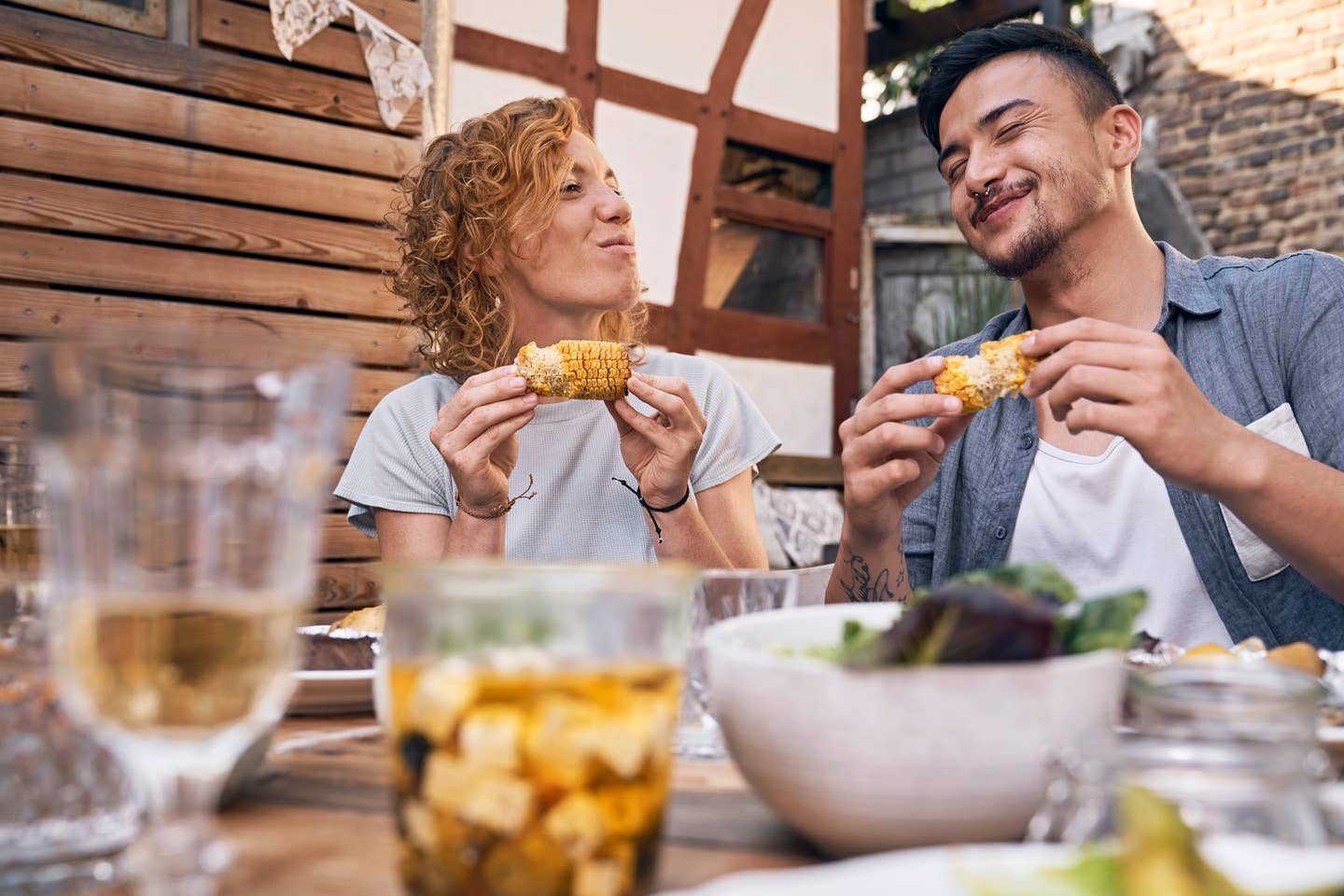
Eating Well and Feeling Well: The Mental Health and Diet Connection
My introduction to plant-based eating began with curiosity: People I knew and respected in the food world were advocating for it, and as a writer and food lover, I decided to investigate. I’d check it out, get a story, somehow survive, and then move on. The fact that my investigation transformed me into a mostly plant-based eater had me all the more curious.
My physical health was fine. No medical conditions. So why was I continuing with the mostly plant-based diet beyond my expected experimentation phase?
Does Eating Well Equal Being Well?
My mental health was not in great shape. The intersection of middle age and profound personal challenges had me suffering. And then came COVID-19, and more personal challenges heaped on top. It was almost comical (not in a Ha-Ha way!), all that I had going on, but somehow I felt more grounded as the days and weeks and months on a plant-based diet passed.
As time went on, I started to suspect that my new plant-based eating habits were inspired by the wellness it provided me, mentally. My mother used to talk to our plants, claiming that doing so made her happy; maybe eating plants was having the same effect on me?
Mental health is complicated, especially for amateurs, so I decided to run my theory by some experts.
Experts Weigh in on the Link Between Diet and Mental Health
Dr. Jeffrey Morrison, of The Morrison Center in Manhattan, is both an MD and a CDN (Certified Dietary Nutritionist). He’s also a widely recognized leader in the field of integrative medicine with an emphasis on nutrition. We spoke on the phone, and I ran my theory of eating well to be mentally well by him. He agreed.
“Plant proteins, such as whole grains and vegetables and legumes, can keep blood sugar in the right zones, preventing swings in adrenaline that trigger the nervous system into ‘fight or flight’ mode,” Dr. Morrison said. “So it’s really a matter of keeping blood sugar at a point where stress hormones, such as adrenaline, aren’t aggravated.”
His point made sense. Being chill is one of the defining characteristics of the vegans or vegetarians I know. There certainly must be a balance that comes from not having adrenaline randomly triggered every time we eat.
Lindsay Wengler is a Registered Dietitian (RD) and a CDN, (found on Instagram at @nutrizionista.in.cucina) practices nutrition in NYC, so we met for a (socially distanced) spritz to talk about my theory.
Processed Foods Can Negatively Impact Mood
“Food not only supplies the calories and macro-nutrients needed to fuel the body’s basic functions, but it also provides a variety of vitamins, minerals, and antioxidants that contribute to our overall well-being and mental health,” Lindsay informed me. “People often tell me that they feel better when following a healthier diet or when they cut back on processed foods - and this is with good reason. The foods we eat (or don’t eat) influence our energy and mood.”
She also explained that there are now a number of studies that connect gut function to brain function. Basically, a healthy digestive system, which you have when eating plant-based, improves mood and overall mental health. (I’d like to add having a spritz to that theory, but my evidence is purely anecdotal.)
How You Eat Can Also Impact Well Being
So the argument that plant-based diets are beneficial to mood is clinically sound, according to two reputable experts who use science and logic for their conclusions. I had another sense of eating well that leads to feeling well that was not directly related but is linked to the benefits of eating with other people as a communal act (something I adore).
“How we eat plays an important role in mental health as well," Wengler agreed. "Mindful eating patterns have become increasingly popular in our busy world. Small steps such as limiting distractions like cellphones, television, and other technology can increase the enjoyment of meals and decrease anxiety. Mediterranean lifestyle practices - preparing and sharing food with others - can contribute to a sense of community and satisfaction that enhances our mental well-being. For sure.”
It reminded me of something Dr. Morrison had said along similar lines. “I 1000% believe that eating with other people, in a communal manner, as opposed to everyone staring at a screen of some sort, makes a difference in our well-being,” he had told me. “The pacing of the meal slows down in a social setting, as opposed to when eating alone or not collectively when we tend to rush through our meal which triggers stress hormones.”
Maybe I should have been a doctor. Or a nutritionist. I guess I’ll just keep writing and eating well and being well as a result, despite the challenges. Hopefully, others will do the same.
More From The Beet






